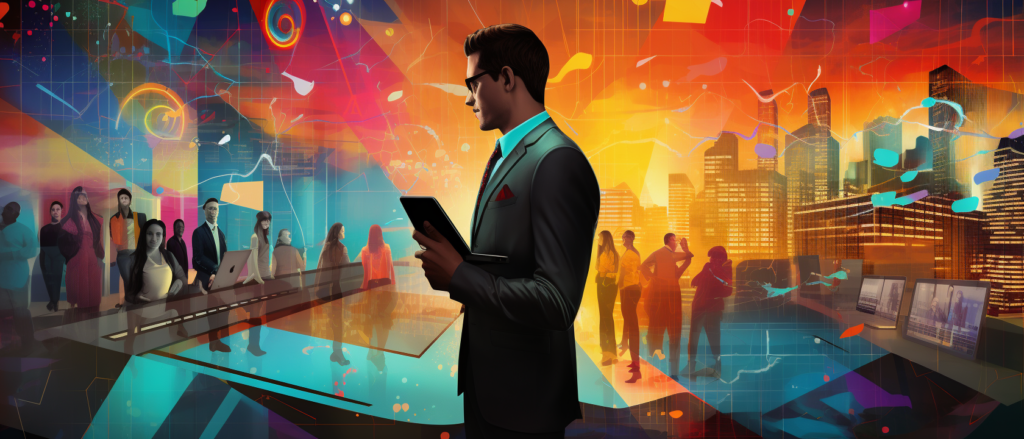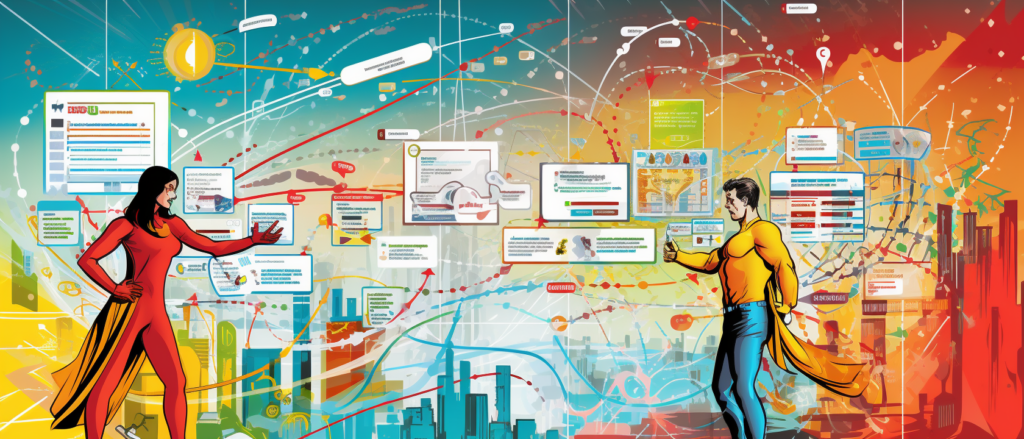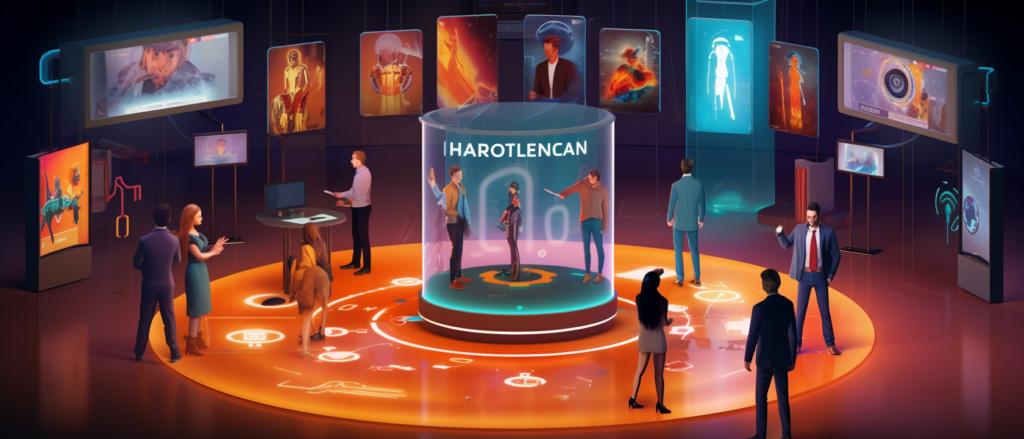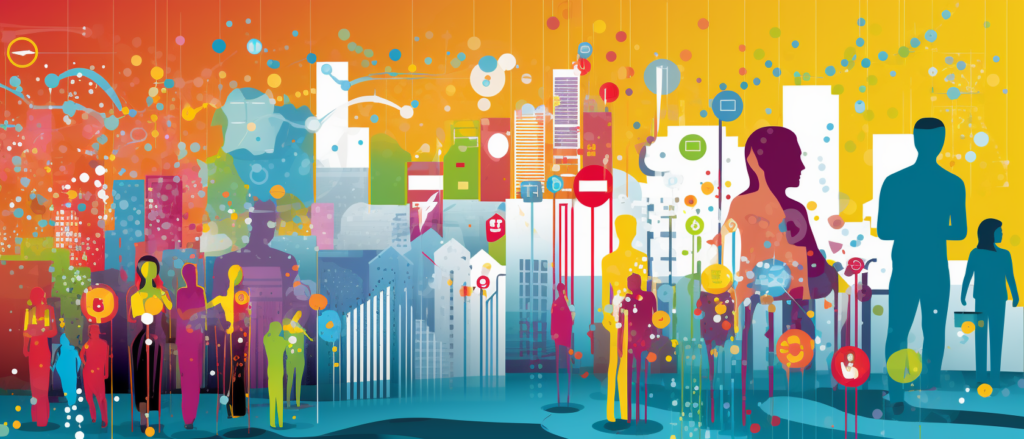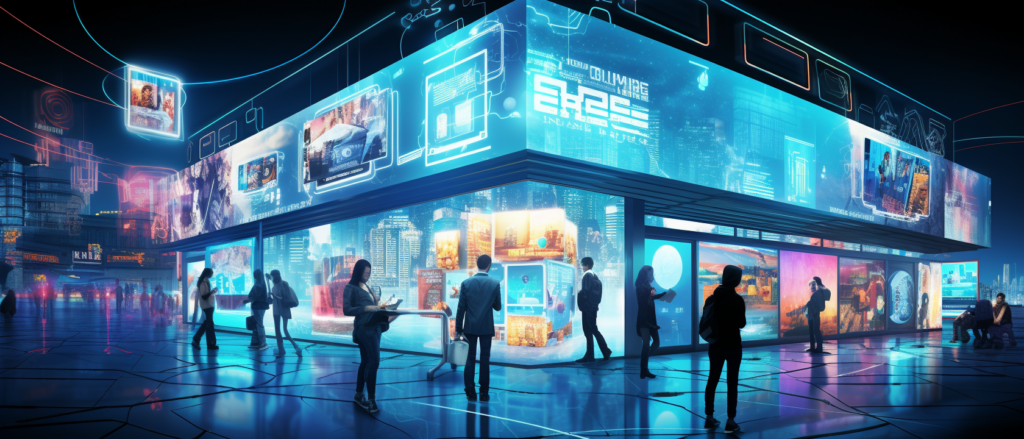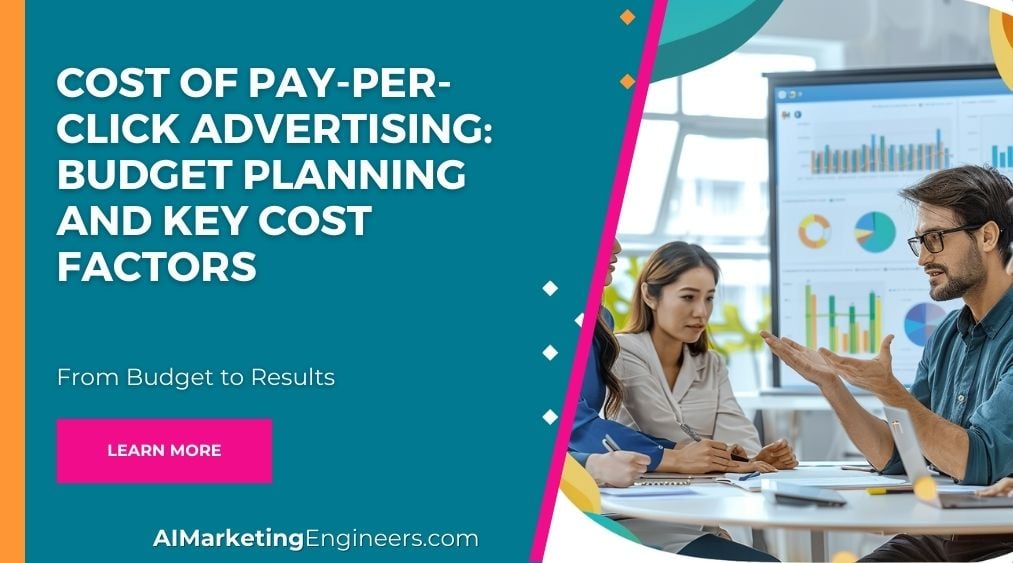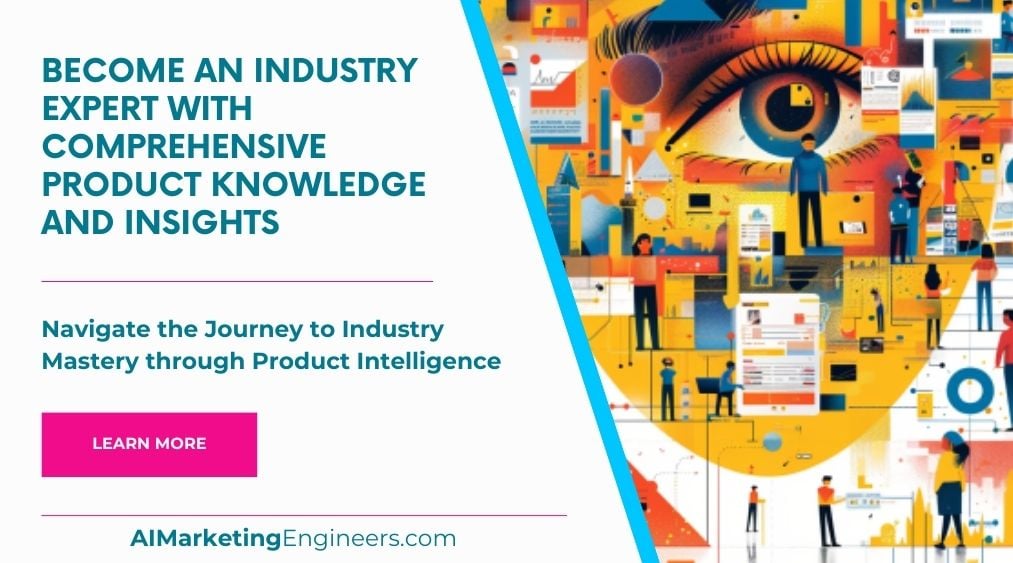Key Takeaways
✅ Data-Driven Personalization: Imagine sending out a marketing message that resonates with each customer as if it were crafted just for them. That's the magic of AI! By diving into the deep pool of customer data, we can now tailor experiences to individual tastes. In fact, companies using AI for personalization see up to a 15% increase in revenue. Ready to see those numbers climb?
✅ Real-Time Optimization: What if you could adjust your marketing tactics the moment you notice a change in trends or customer behavior? Real-time is no longer a buzzword, it's the new standard. AI doesn't sleep, which means your campaigns get smarter by the minute. Businesses report up to a 30% uptick in conversion rates when they leverage real-time AI optimization.
✅ Scalability and Efficiency: Remember when personalization meant hand-crafting one message at a time? Those days are gone. AI lets us reach not just hundreds, but millions of users with messages that hit home, without breaking a sweat. The efficiency gain? Astronomical. Marketers can expect to save countless hours – time that's better spent on strategy and creativity.

Introduction
Ever had that moment when an ad pops up online and it feels like it was made just for you? That's Personalization at Scale working its magic, and it's all thanks to AI's touch. Every time you shop, search, or socialize, there's a good chance artificial intelligence is quietly shaping your experience. But what does this mean for businesses aiming to capture hearts and dollars?
In marketing, the glue that binds customers to brands is user engagement. It's a cornerstone of business growth. The secret sauce? Personalization. And not just any kind, but the kind that can handle the heavy lifting of big data and the fast pace of digital commerce. Enter AI, the powerhouse transforming how we deliver personalized experiences to consumers en masse.
So, what's in it for you? This article is teeming with insights on how to harness AI to not just meet, but exceed customer expectations. We unwrap the potential of AI to boost your bottom line, fortify customer relationships, and steer a course toward marketing innovation. Join us as we reveal a treasure trove of actionable tips and secrets that could redefine the way you engage with your audience. Your journey to marketing mastery starts here. Let's unlock the power of personalization together.
Top Statistics
| Statistic | Insight |
|---|---|
| Measurable improvements from personalization: 88% of marketers have seen positive results, over half with more than 10% lift. (Source: Evergage, 2020) | It seems like almost everyone is getting on the personalization bandwagon, and it's no wonder why – the numbers don't lie. |
| AI in marketing market growth: Expected to reach $50.34 billion by 2027, growing at a CAGR of 30.3%. (Source: Grand View Research, 2020) | When you hear that kind of growth projection, it's like a heads-up to marketers: understanding and harnessing AI could really be worth your while. |
| Consumer expectations for personalization: 66% anticipate companies to know their unique needs. (Source: Salesforce, 2020) | Two out of three customers are basically saying, "Hey, get to know me!" That's a lot of folks expecting your marketing to be spot-on with what they want. |
| Personalized offers and recommendations: 91% of consumers prefer shopping with brands that provide these. (Source: Accenture, 2019) | It's pretty clear here – make shopping personal and more people will flock to your store. Let's not ignore what 91% are hinting at. |
| ROI on personalized marketing: Can deliver five to eight times the ROI on marketing spend, and uplift sales by 10% or more. (Source: McKinsey & Company, 2019) | Imagine boosting sales by 10% just by making your customers feel like they're getting the special treatment. Also, an ROI that high is something to aim for, don't you think? Especially since personalized marketing can be such a game-changer. |
Understanding Personalization in Marketing
Have you ever wondered why the emails from your favorite online store seem to know just what you're interested in? That's personalization in action – the process of tailoring experiences and content to individual users. Personalized marketing isn't just about addressing someone by their first name; it's about delivering the right message, at the right time, to the right person. For businesses, getting this right can mean the difference between being ignored or achieving a sale.
The Role of AI in Personalization
Picture a world where every marketing message feels like it was crafted just for you. Artificial Intelligence (AI) makes this possible at scale. Machine learning algorithms learn from tons of data about users' behaviors, preferences, and previous interactions. They then predict what might tickle your fancy in the future. These clever systems can analyze data in real time and adjust messages on-the-fly to resonate with you more deeply. And yes, they can even take over the tedious task of creating personalized content that feels like it was handcrafted with love.
Benefits of AI-Powered Personalization
So what's in it for businesses and consumers? For starters, when messages are relevant, customers are happier and far more engaged. They're more likely to think, "Hey, this brand gets me!" That kind of customer experience can turn a one-time shopper into a lifelong fan. It makes sense, then, that businesses who master AI-driven personalization can see their sales numbers climb. Even more, they can keep their customers coming back for more, transforming fleeting interactions into strong customer loyalty.
Personalization Use Cases in Marketing
Ever received an email suggesting a sweater because you bought a scarf last winter? That's a personalized email campaign at its finest. Or maybe you've visited a website and felt it was speaking directly to you; that's a tailored website experience. AI can also suggest products you'll likely want to throw into your shopping cart next, and even customize the ads you see on social media. These aren't just cool parlor tricks; they're powerful ways to make sure marketing efforts hit home with individuals.
Challenges and Best Practices
But hold your horses, it's not all smooth sailing. With great power comes great responsibility, and data privacy is a huge concern. Customers want to feel understood, not watched. Then there's the headache of figuring out how to get different systems to talk to each other (the dreaded data silos). To strike the perfect balance, businesses need to walk a tightrope between personal and, well, creepy. By following best practices around customer privacy and integrating data wisely, businesses can personalize without overstepping.
The Future of Personalization in Marketing
Where is all this heading, you ask? The future of personalized marketing is like an untamed frontier – exciting and wild. Emerging AI technologies will get even better at anticipating customer needs, perhaps even before customers know what they want. This has some exciting implications for the customer journey, transforming every touchpoint into a personalized experience. Staying ahead of the curve will mean continuously exploring and adopting new AI strategies to create even more delightful customer experiences.
In sum, personalization powered by AI is a game-changer in marketing. It's a journey of continuously learning from customers and refining messages to suit their unique tastes and needs. With the right approach, businesses can turn an overwhelming rush of data into meaningful interactions that feel just right. And who doesn't love feeling like someone out there truly understands them?
AI Marketing Engineers Recommendation
Recommendation 1: Cultivate Trust Through Transparency in AI-driven Personalization: Data shows that over 75% of consumers are more likely to buy from brands that personalize, but they're also increasingly aware of their data privacy. So, be clear about how you're using AI to personalize their experiences. It’s one thing to know that customers like shoes, but another to say, “We noticed you're eyeing these boots, here's a 10% discount to nudge you!” It's like making a new friend who remembers your coffee order – it feels good, right? Just be that friend who's upfront about how they remember.
Recommendation 2: Balance AI Personalization with Human Touch: Current trends lean towards blending high-tech with high-touch. Even though AI is doing the heavy lifting, it's crucial to remember there's a human at the other end. Let's say your AI suggests a playlist based on listening habits; why not have an actual person send a message saying, “We made this mix just for you!” It’s like the difference between getting a birthday card from your bank automatically generated, or one handwritten by your favorite teller. Which one makes you feel like sticking around?
Recommendation 3: Integrate AI Personalization Across Multiple Channels: Consumers nowadays hop from device to device and expect a seamless experience. Implement a tool like Salesforce’s Einstein or Adobe Sensei that gathers insights across different platforms to create a unified user profile. This means whether your customer is on their laptop at work or scrolling through their phone at midnight, the conversation continues without missing a beat. Remember how frustrating it is when you have to repeat your order to every new waiter at a restaurant? Don't be that restaurant.
Relevant Links
Boost Your Sales with Genius AI Personalization Techniques!
How to Craft Mesmerizing Marketing Messages with AI
Revolutionizing Customer Journeys Through AI!
Discover AI’s Role in Shaping Your Marketing Future
Unlock the Secret to Everlasting Customer Loyalty with AI!
Transform One-Time Shoppers into Loyal Fans
Are Robots the New Marketers? The Truth Exposed!
AI in Marketing: Boon or Bane for Creativity?
Conclusion
So, where does this journey with AI and personalization take us? Personalization at scale, it's not just a trendy buzzword; it's the real deal in transforming how we connect with each other. Think about it – that feeling when something is just right for you, how does that make you feel? Valued? Seen? Well, that's the heart of user engagement, and it's where AI comes into play, acting like a trusty sidekick helping marketers craft those perfect, "this is so me" moments at a grand scale.
We've explored how AI is pretty much like the wizard behind the curtain, using data and machine learning to whip up content that feels like a one-on-one conversation, even when it's reaching out to thousands, if not millions, of people. And let's be honest, diving into your inbox or browsing online to find messages or offers tailored just for you can turn a mundane activity into an experience that might just keep you coming back.
But here's the thing – with all the flashy benefits like sky-high engagement rates, and customers sticking around longer, we can't ignore the flip side. We've all got that little voice in our head whispering, "Is this too much? What about my privacy?" It's a delicate dance, and the best marketers are the ones who not only lead with dazzling AI moves but also listen to their partner – that's you, the user – and respect their pace.
As we stand at the edge of tomorrow's marketing landscape, the horizon is bright with the promise of AI leading the charge in personalization. But let's keep our feet on the ground, remember the person behind the data point, and move forward with that magical blend of technology and humanity. Ready to make your customers feel like the VIPs they are? Let AI be your guide, but never forget the power of the personal touch.
FAQs
Question 1: What is personalization at scale in marketing?
Answer: Imagine you walk into your favorite coffee shop, and they know just how you like your coffee. That's personalization, my friend. But what if a million coffee lovers got the same experience? That's personalization at scale – using AI to craft those perfect cups of joe, but for a whole crowd at once.
Question 2: How does AI enhance user engagement in marketing personalization?
Answer: So, AI is like the super-smart barista who remembers not just your coffee order, but everyone else's too. It looks at what you like, what you click, and what you buy to whip up something that's your kind of special, every time.
Question 3: What are the benefits of personalization at scale in marketing?
Answer: Who doesn't want to feel special, right? When marketing gets personal, users stick around, wallets open up more often, and brands build fans for life. Plus, it's smarter business – talking to the right person, at the right time, with the right message.
Question 4: What types of data are used for personalization at scale?
Answer: AI's secret ingredients include who you are (demographics), what you do (your clicks and purchases), the buzz you create (social media mojo), and even where you're chilling (location info).
Question 5: How does AI help in segmenting users for personalization?
Answer: AI sorts us into groups, like music fans or fitness buffs, without breaking a sweat. It makes sure messages strike a chord with each different audience.
Question 6: What are some common AI techniques used for personalization at scale?
Answer: The AI magic toolbox has some nifty gadgets like learning engines (the brainy part), language experts (for chit-chat), taste predictors (think Netflix but for shopping), and fortune-tellers (predictive analytics, not crystal balls).
Question 7: How can marketers ensure the privacy and security of user data used for personalization?
Answer: It's like keeping a secret; lock it up tight (encryption), limit who knows (access controls), and keep checking the locks (security audits). Plus, being clear with users about how their data is used and letting them say no to the personalization party if they want to.
Question 8: What are some practical tips for implementing personalization at scale?
Answer: Got to have a game plan, pick your battles, leverage AI power tools, keep tweaking, and watch how it's working. It's like baking a cake – start with a good recipe, but don't be afraid to try a new frosting.
Question 9: How can marketers measure the success of personalization at scale?
Answer: We're counting clicks, conversions, how much a customer is worth over time, and whether the investment is paying off (ROI). Plus, AI can help spot trends in what users like or don't like.
Question 10: What are some common challenges associated with personalization at scale?
Answer: The roadblocks? Crummy data, not enough know-how, AI tech that doesn't play nice with old systems, and sometimes stepping on toes with messages that miss the mark.
Now, let's get those FAQs into that fancy JSON-LD script for all the web gurus out there.
Academic References
- Schweidel, D. A., & Lewis, M. A. (2019). Personalization at Scale: Transforming Customer Engagement with AI. This insightful book dives into how artificial intelligence can reshape marketing strategies through personalization. It emphasizes the critical role of data in making informed decisions and the vast improvements in customer loyalty, sales, and marketing optimization that personalization can yield.
- Batra, A., & Kumar, S. (2020). The Impact of Artificial Intelligence on Personalization in Marketing: A Literature Review. Published in a respected journal, this review shines a light on AI's expanding capabilities to process customer data and provide precisely targeted marketing. The authors also take a thoughtful look at the ethical questions raised by these cutting-edge technologies.
- Venkatesan, R., & Lecinski, J. (2019). Personalization at Scale: The Role of AI in Driving Customer Engagement. In this compelling article, the authors tackle the hurdles and prospects of mass personalization by harnessing the power of AI, underlining the importance of data integration and machine learning's predictive prowess to achieve truly individualized consumer interactions.
- Singh, N., & Dixit, A. (2019). Artificial Intelligence and Personalization in Marketing. Explored in an academic paper, Singh and Dixit probe deeper into how machine learning algorithms can be utilized to assess customer information and customize experiences. Crucially, they discuss the challenges that come with AI personalization, including concerns about privacy and biases in algorithms.
- Shankar, R. (2019). Personalization at Scale: How AI is Changing the Game in Marketing. Shankar's article outlines the advantages of AI in personalization, marking the significance of instant data analysis and predictive modelling. It illustrates AI's potential to refine consumer experiences and escalates user engagement, transforming the marketing arena.

